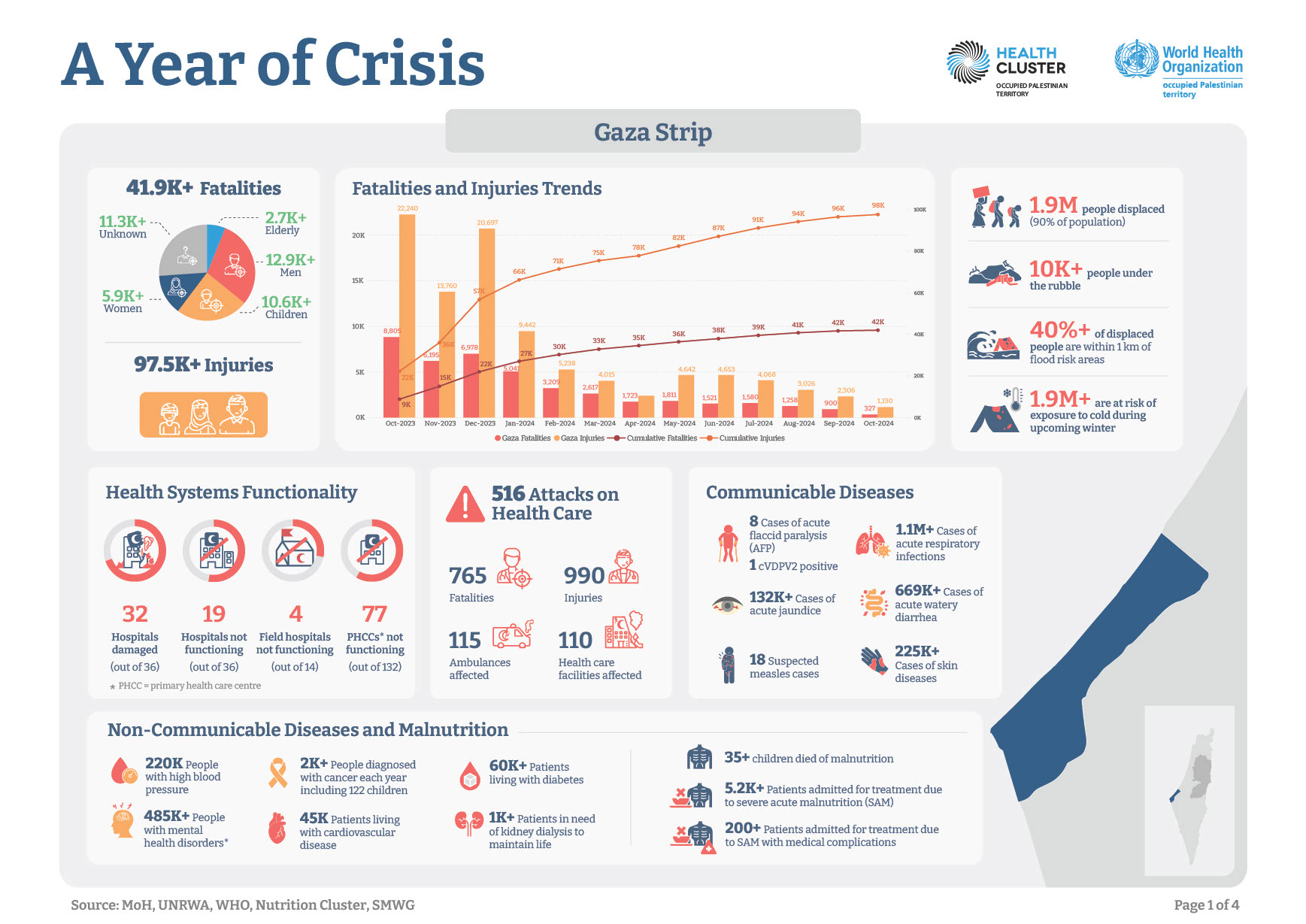occupied Palestinian territory
Gaza
Since October 2023, Gaza has experienced unprecedented destruction, leaving its healthcare system in total collapse. Hospitals are non-functional, and medical supplies are severely depleted. About 1.6 million Palestinians rely on UNRWA health services, which struggle to operate amid fuel and supply shortages. The lack of sanitation and clean water has driven a surge in diseases, including acute malnutrition affecting one in ten children. Mental health conditions, such as PTSD and severe anxiety, are widespread due to continued violence. Without urgent interventions, the humanitarian crisis in Gaza will worsen, further endangering the lives of millions.[1]
West Bank
The healthcare system in the West Bank is also under severe strain, worsened by movement restrictions, settler violence, and economic collapse. Hospitals operate at only 70% capacity, while primary healthcare centers function just two days a week. Essential medicines and disposables are in short supply, with some stocks at zero. Attacks on healthcare facilities have surged, with over 300 reported incidents in 2024. Many communities, particularly in Area C, struggle to access even basic medical services, leaving vulnerable populations, including children and pregnant women, at extreme risk.[2]
[1,2] Flash Appeal issued in December 2024
The information displayed here is updated in reference to the Health Cluster dashboard, in quarterly periods

Map disclaimer: Data source: WHO. Map production: WHO/Health Emergencies Programme. @ WHO 2021. All rights reserved.
oPt Country Dashboard*
*Updated daily or as often as data is received and validated.
Health Cluster coordination
Emma Fitzpatrick
Health Cluster Coordinator
fitzpatricke@who.int
Health Cluster team
National team: 3
Coordinator: 1 FT
Information management officer: 0
Public health officer: 1FT
GIS officer: 1FT
Subnational hubs: 2
Health Cluster partners
Partners: 118
International NGOs: 53
National NGOs: 35
UN agencies: 5
National authorities: 1
Donors: 20
Observers: 4






